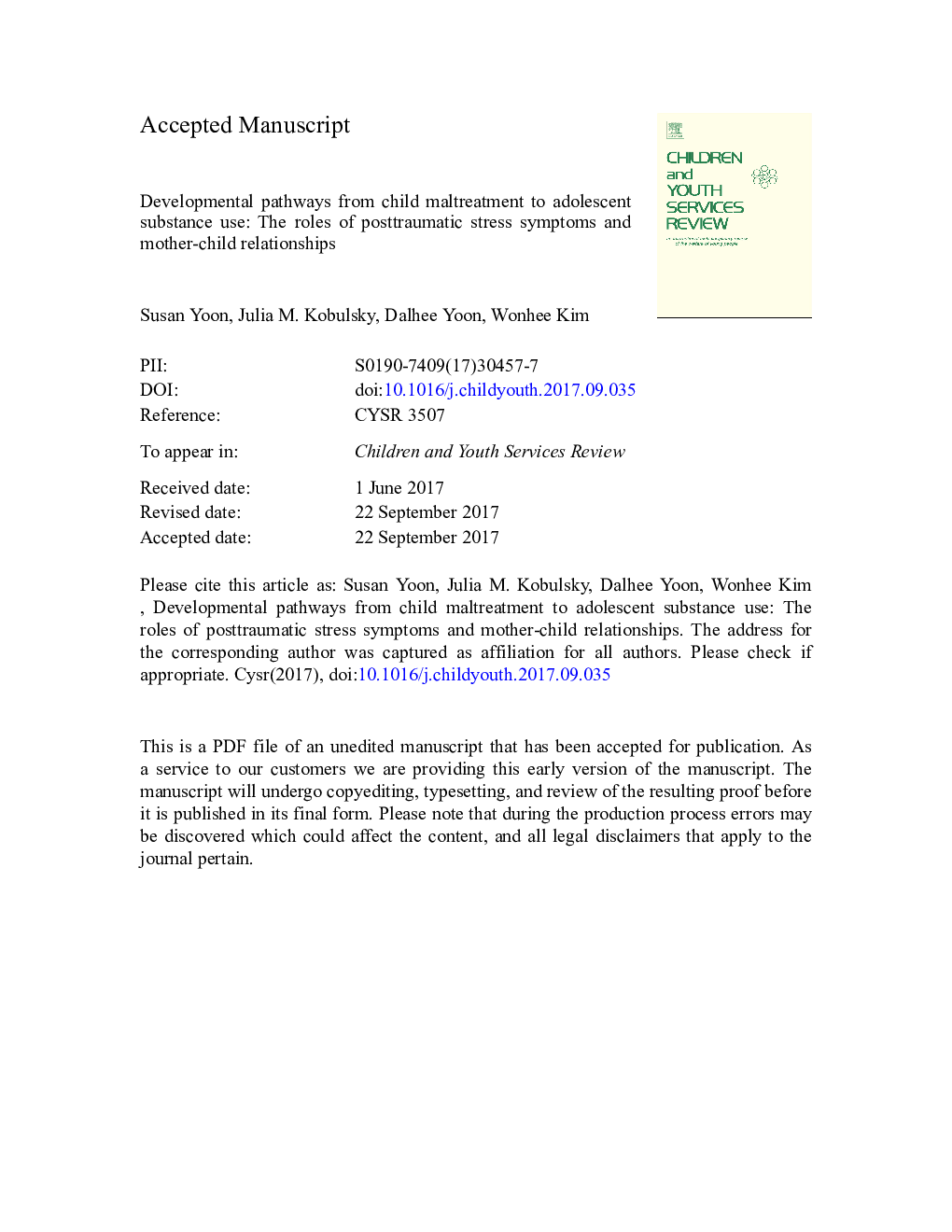| Article ID | Journal | Published Year | Pages | File Type |
|---|---|---|---|---|
| 6833623 | Children and Youth Services Review | 2017 | 42 Pages |
Abstract
While many studies have identified a significant relation between child maltreatment and adolescent substance use, the developmental pathways linking this relation remain sparsely explored. The current study examines posttraumatic stress (PTS) symptoms, mother-child relationships, and internalizing and externalizing problems as potential longitudinal pathways through which child maltreatment influences adolescent substance use. Structural equation modeling was conducted on 883 adolescents drawn from the Longitudinal Studies of Child Abuse and Neglect (LONGSCAN). The pathways of PTS symptoms linked physical and sexual abuse to substance use, and the pathways of mother-child relationships linked emotional abuse and neglect to substance use. None of the four types of maltreatment affected substance use via internalizing or externalizing problems. The findings suggest that intervention efforts aimed at addressing posttraumatic stress symptoms and improving mother-child relationship quality may be beneficial in reducing substance use among adolescents with child maltreatment histories.
Keywords
Related Topics
Health Sciences
Medicine and Dentistry
Perinatology, Pediatrics and Child Health
Authors
Susan Yoon, Julia M. Kobulsky, Dalhee Yoon, Wonhee Kim,
